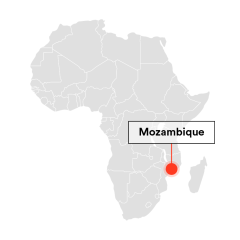Design a comprehensive EVAWG programme

Design a comprehensive EVAWG programme
Case Studies

All Spotlight Initiative programmes adopt a comprehensive theory of change and work across multiple outcome areas at once. The approach taken by Spotlight Initiative Mozambique was as follows:
To support legislation and policies to end VAWG, Spotlight Initiative worked with the Government of Mozambique to reinforce legislation and policies and develop multiple legal and policy instruments. These instruments included the Multi-sectoral Mechanism for Prevention, Reporting, Referral and Response to Violence Against Children at Schools, the Gender Strategy for the Public Administration (2020-2024) and the Regulation on the Organisation and Functioning of Center for Integrated Assistance to Survivors of Violence.
These instruments were disseminated to over 4,386 people across communities in more than 160 dissemination sessions. A total of 1,500 copies of laws were distributed in pocket form to community leaders, women’s rights groups, and civil society organisations. Spotlight Initiative also supported the dissemination of these laws and instruments among service providers and police officers.
To support institution strengthening, Spotlight Initiative trained and worked with 874 planners and budget officers from different government entities to develop guidelines for planning, budgeting, monitoring and evaluation of procedures on ending VAWG. They also supported coordination of existing multi-stakeholder mechanisms for addressing VAWG through regional seminars, reflection sessions, and joint gender strategies and action plans to end VAWG.
To support prevention efforts, Spotlight Initiative:
- Trained over 500 community activists and mentors to conduct face-to-face awareness raising campaigns across multiple communities. The campaigns reached over more than 700,000 people (420,234 of whom were girls) through door-to-door campaigns that used megaphones to spread messages.
- Ran 210 community dialogues raising awareness about VAW in which 13,389 adults (9,341 of whom were women) and 11,524 adolescents (5,870 of whom were girls) participated. These dialogues supported Spotlight Initiative to identify 239 cases of child marriage and abuse, which were reported to the local authorities. Of these, 89% of cases were resolved in favour of the survivor.
- Supported capacity strengthening for 800 community duty bearers to improve their ability to identify, prevent and fight harmful practices and VAWG. In 2021, 30 community leaders had started leading interventions at the community level to counter VAWG.
- Funded 150 radio programmes, four television debates, and twenty episodes of an edutainment radio drama targeting adolescents to prevent child marriage, sexual abuse, teenage pregnancies, and GBV. This series also included specific content for young people with disabilities.
To improve access to quality services, Spotlight Initiative increased access to essential services across Mozambique. Through these efforts over 50,000 women and girls, and men and boys accessed existing essential services. For example, 6,194 people accessed legal assistance including representation in VAWG and child marriage cases; 93,366 adolescents and young people (34% of whom were boys and young men) accessed sexual and reproductive health services; 36,462 people were reached through mobile clinics; 340,000 young users were reached through an SMS platform; and 7000 people benefitted from seven justice fairs across three provinces, aimed to accelerate a backlog of justice cases.
To improve quality and accessibility of data, Spotlight Initiative collaborated with the Ministry of Interior to support the development of a GBV information management system, conducted research and invested in the training of civil servants. This GBV information management system supported the registration, management and control of GBV cases. It also improved data analysis to enhance the quality and speed with which survivors were able to access services. This is the first successful initiative in Mozambique’s national efforts to digitise and systematise GBV data.
To strengthen WROs and CSOs, Spotlight Initiative trained 71 WROs to strengthen their knowledge of existing accountability mechanisms and supported these groups to increase their lobbying and advocacy activities. Spotlight Initiative supported WROs to gain legal status, increasing their access to financial loans to support their long-term operations. The programme also mapped 60 national and regional CSOs working in GBV, child marriage, and sexual and reproductive health and rights to support a South-South learning exchange. and built capacities of women and girls from CSOs to promote and monitor human rights, gender equality and the elimination of GBV. This led to the development of an eradication support group, which Spotlight Initiative expects will be key to community awareness raising on ending VAWG.







